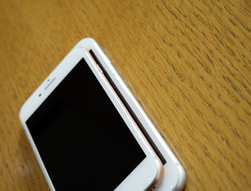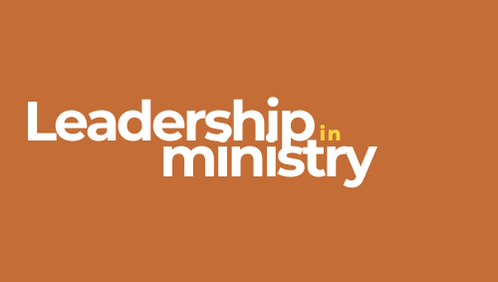|
Leaders are falling around the world each year.
While I am sure fallen leaders thought they would never descend from their lofty position, the Scripture still rings true, “So if you think you are standing firm, be careful that you do not fall (First Corinthians 10:12 NIV).” As Christian leaders, what are some leadership pitfalls we can avoid so that we are not making the same mistakes others have made? Here are three Leadership Pitfalls to avoid.
As leaders, let’s not repeat the mistakes of the past. Let us grow in godliness, serve those we lead and learn more today than ever have before. More importantly as Christian leaders, let’s seek the glory of God in our leadership rather than our own glory.
0 Comments

ver 2.1 billion people in the world own a smartphone (Source). From social media posts to text messages, we are able to connect to one another instantly. While there’s the possibility of unproductive smartphone usage, I want to look at eighteen different ways we can use our smartphone for ministry.
Let’s begin... Notifications - My smartphone is always with me, so I take advantage of notifications. Notifications are simply alerts displayed on smartphones. Notifications can typically be controlled by the user. My notifications are generally for calendar alerts, scheduled to-do lists or prayer needs. Calendar (Widgets) - Often someone will want to schedule an appointment or a meeting with me. In the past, I would take their name and number then call them later that week to schedule a time. Now, I simply use the Calendar app or look at my calendar widget to see what times I have available. The most popular calendar apps: Google Calendar; Sunrise Calendar; Microsoft Outlook. App Organization - I have organized my apps into separate, labeled folders. So instead of taking time to look through a screen full of apps, I have my apps organized into four folders: Productivity, Finance, Social Media, Communication. On most smartphones, you can label and organize as many folders as you would like to have. Note Taking - As I make hospital visits with church members, it’s often difficult for me to remember the details of each visit. So I take time after each visit, using my smartphone, to type a few notes about the visits and ways to pray for the individual using my note taking app. I personally use Google Keep, but there are others like: Evernote, Microsoft OneNote, and Simplenote. Camera - This may seem simple, but the camera is one of my most productive ‘apps’ on my smartphone. Not only do I use it to take pictures of church events, but when I notice a maintenance issue or an out-of-date promotional poster, I simply take a picture of the issue and email it to the proper staff member or keep it in my camera roll as a reminder to resolve the issue at a later time. Minimal Gaming/Social Media - Personally, games can be a distraction to my ministry, so I have deleted all games from my smartphone. Also, I have minimal social media apps downloaded on my smartphone as well as social media has the reputation of distracting employees in the workplace. Don’t misunderstand, I am not saying playing games or social media use is a sin, but when they distract me from Kingdom work, then I delete the apps. Voice Assistant - This aspect of the smartphone has become controversial in recent years, but I use my smartphone voice assistant more for productivity related issues. When I’m driving and need to add something to my to-do list, I use my voice assistant by saying (for example), “Hey Google, add Call John to my calendar tomorrow” and the assistant will automatically add it to my calendar. I understand privacy concerns, but I mute my voice assistant during any important conversation and counseling sessions. Google Assistant, Siri, Alexa and Cortana are some of the more popular voice assistants. Bible - While I don’t use the Bible app on my smartphone for personal devotion usage, I have uploaded it for emergency use in the event I have forgotten my Bible. I do know ministers who use their Bible app for preaching/teaching. The Bible App from Life.Church is the app I trust on my smartphone. Podcasts - Whether I’m driving or walking to an appointment, I occasionally like to listen to podcasts from my smartphone. Podcasts from Google Podcasts, Podcast Addict, and iTunes are apps that you can use to listen to podcasts. Email - I have both personal and ministry related email apps on my smartphone. However, recently I decided to turn off notifications from my email apps as I found myself checking every single email notification I heard. Now, I have to manually refresh my email app in order to upload any new emails. Video Calls - I only use these apps for family use. Often, ministry takes me out of town or I simply like to check in with my kids from the office. I’ll use a video app to say hello to my family. Google Duo, Facetime and Skype are each popular apps to use for Video Calls. Lastpass - This app saves passwords to websites and app logins. This can save time because if you’re like me, I have about 37 different passwords to choose from memory each time I try to log into an app or website. With Lastpass, one Master Password is all I need to remember. Trello - I use this app for events and event planning. Each phase of an event has its own board and each board has individual ‘cards’. If I’m walking around the campus during the planning stages of an event, I can utilize Trello to review how planning is going or add an action item to the plan. To-Do Lists - I am not a fan of to-do lists, but they are necessary at times. Often if I am out of the office, I will utilize my to-do list app to record an item before it slips my memory. I use Google Keep, but other apps include: Todoist, Wunderlist, Asana, and Microsoft OneNote. IFTTT - This app can bring different apps together to help you become more productive. For example, during schedule meetings on my Google Calendar, IFTTT automatically will mute my smartphone. Or if I post a picture of a church event on the ministry Facebook page, IFTTT will run an ‘applet’ that will repost the picture to my personal Facebook page. There’s hundreds of different ways you can use IFTTT. Pocket - I enjoy reading articles. Often when I’m reading an interesting article and want to refer to it at a later time, I will save it to the app Pocket. Even if I am offline, Pocket will make the articles I’ve saved available to read. Cloud Management - I don’t like to use the storage space on my computer or phone for work related items. I use a cloud management system, Google Drive, so I can access all my work items from anywhere. If I want to see a budget report while I am out of the office, I can utilize my cloud management system to view the report from my phone. Microsoft Office, Dropbox and Google Drive are some of the more popular systems. NOTE: Many church membership management systems are using the cloud so it makes it easier to access membership information. Check with your church membership management system to see if it’s available. Rewards Cards - Finally, there are different stores I shop at that provide rewards cards. Instead of filling my wallet with another card or having miniature cards attached to my key-chain, I have downloaded an app that allows me to scan my rewards cards. Now, when I’m an a store that uses a reward card, I simply open the app, find the reward card, show them my smartphone and they scan it. Android Pay, StoCard and others can be used for rewards cards. These are some of the ways I use my smartphone for ministry. What are some of the apps you utilize most for your ministry or area of work? |
Archives
March 2023
This website uses marketing and tracking technologies. Opting out of this will opt you out of all cookies, except for those needed to run the website. Note that some products may not work as well without tracking cookies. Opt Out of Cookies |


